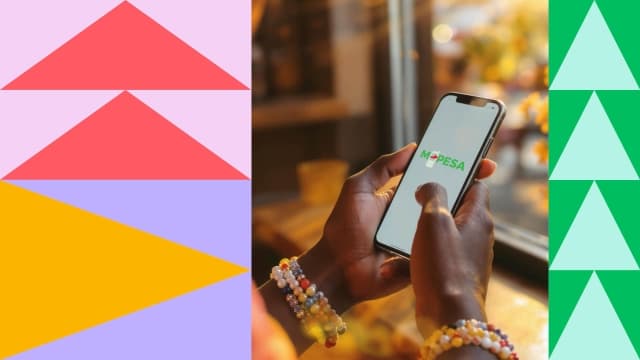Which M-PESA Payment Option Is Best for Small Businesses: Personal Number, Pochi, Till, or PayBill?

Should you use your Personal Number, Pochi la Biashara, Till Number, or PayBill?
Are you running a business in Kenya?
If you are, then you already know one thing for sure: M‑PESA isn’t just convenient… it’s survival.
From selling handmade earrings at a craft fair, to running a bakery, online boutique, or even a full-on school, how you collect money matters.
It affects:
•How customers perceive you
•How clean your accounting stays
•And - let’s be honest, whether your hustle grows or stays stuck at “side hustle” forever.
So today, let us answer the burning question:
“What’s the BEST way to collect payments on M‑PESA?”
Should you:
•Keep using your personal number?
•Try Pochi la Biashara?
•Register for a Till Number?
•Or go big with a PayBill?
No jargon. No bank-speak. Just real talk for real Kenyan businesses.
Option 1: Using Your Personal M‑PESA Number 📱
Hii ndio njia ile rahisi sana, lakini… it is the messiest option
Here's how it works:
Hapa, you give your customer phone number yako, then wanakutumia kwa M-PESA yako. Ukipata confirmation, you are good to go. Done.
Why is this so tempting?
•Zero setup, inakuja na simcard
•No paperwork
•Customers already know how to do it
But here’s the catch:
•Business na personal cash zinamix, hakuna separation
•Endless SMS scrolling ukijaribu kureconcile sales
•Looks unprofessional, especially kama una deal na corporates or new clients
•No customer statements, no transaction reports
•Customers can reverse a payment, so unaweza enda loss at the end of the day 😭😱
Who’s it for?
Absolute beginners, one-time sellers, and first-time side-hustlers.
When to upgrade:
Ukifikisha 3–5 business transactions per day, sasa unaweza level up.
Option 2: Pochi la Biashara
Hii sasa ni the next step for side hustlers na small traders.
What it is:
Hii ni Safaricom’s light-business solution. Hii husaidia sana ku separate business money from personal money. Lakini bado unatumia your personal number.
How to activate:
Dial *334# → Select Pochi la Biashara → Follow the prompts.
Why Pochi La Biashara rocks:
•No shop visits. No paperwork.
•Business funds zinakaa separate (goodbye chama confusion)
•Hakuna kumemorize new numbers, you still use your normal number
•Payment notifications huappear clearly tagged as Pochi payments
•No fees kuset-up
•Unachagua when to transfer funds into your personal M‑PESA
Limitations:
•Customers wanaona your personal name, sio biashara
•Hakuna business statements ama analytics
•Reporting sio fancy
•Pesa bado iko tied to your SIM card, ukipoteza phone yako unaingia panic mode
Who it’s best for:
Food vendors, market traders, boda riders, small online sellers, Instagram boutiques.
Option 3: Lipa na M‑PESA Till Number (Buy Goods) 🛒
Ukiwa nah ii, unajua umeanza kufika kibiashara 😊
What it is:
Hii ni a unique business payment ID from Safaricom. Customers wakilipa, your business name appears on their M‑PESA screen.
For example: Customer pays → Sees: “Payment to: (Your business name)”
How to apply:
•Online via Safaricom Business Portal
•Or visit a Safaricom shop with your business registration certificate and ID
Benefits:
•Inakaa professional sana and this builds customer trust
•Uko na access to M‑PESA Business App
•Track real-time sales
•Unapata daily, weekly, and monthly reports
•Manage multiple outlets or staff users
•Siku izi unaweza withdraw up to Ksh 50,000 per day for free
•Zero customer charges when they pay you (small business-friendly)
•Some free merchant-to-M‑PESA withdrawals
Charges to know about:
•Safaricom inacharge the business a transaction fee (approx 0.5% to 1%), hii inadepend on volume
•Withdrawals above the free Ksh 50k/day cap will attract agent withdrawal fees
•Moving money to a bank account may also attract fees
Who it’s for:
Shops, salons, bakeries, online boutiques, restaurants, event planners, etc. Basically kama uko serious about growing and formalizing your business, hii ni yako.
Option 4: PayBill Number 🏦
Now this is for the big boys and big girls. This is for big payments.
What it is:
A business payment solution with a reference field.
Your customer enters your PayBill Number AND an Account/Reference Number when making payment.
Hii ni perfect for schools, landlords, NGOs, SACCOs, and utility companies.
Example Use:
Customer paying school fees → They enter the child’s Admission Number as reference.
Setup process:
•Business registration certificate
•KRA PIN
•Bank details
•Longer approval timeline
Benefits
•Extremely professional
•Track individual customer payments
•Get detailed business statements
•Handle large payments with ease
•Supports recurring or structured payments
Limitations
•Setup and monthly fees apply
•Higher transaction charges than Tills
•Setup takes time and documents
•Small businesses may find it overkill
M‑PESA Business Charges & Transaction Fees

Withdrawal Fees (from Till/PayBill above daily free limit):
•From Ksh 101–500: Ksh 11
•From Ksh 501–1,000: Ksh 28
•Large withdrawals: Up to Ksh 309 for highest brackets
Tax, Compliance, and Loan Access 💼
Here’s the thing:
•Business accounts (Till/PayBill) make KRA tracking easier – Wacha tulipe tax tujitegemee.
•They help build business transaction history… hii history inaweza kusaidia kupata business loans.
•Kenyan lenders kadhaa wana partner with Safaricom to offer microloans and SME funding based on M‑PESA Till turnover.
Reconciling Sales: The Reality Check

Security & Recovery🔒
•Personal Number & Pochi: Pesa zako zinabaki on your SIM. Lose your SIM = chaos (until you replace it).
•Till & PayBill: Funds zako zinabaki in a business wallet. You access them via Safaricom Business App, Web Portal, or by contacting Safaricom.
Real-Life Use Case Cheat Sheet 🧑💼

Which One is Best for You?
•Umeanza biz juzi? → Stick with your Personal Number or Pochi la Biashara.
•Biz yaki inagrow and you want to look professional? → Go for a Till Number.
•Handling structured or high-volume payments? → Level up to PayBill.
Because let’s face it:
“The goal is not just to make sales… it’s to get paid well, track your money, and grow your business bila headaches za biashara.”
So… what are you using now?
Na kama umemake the switch, what changed for you?